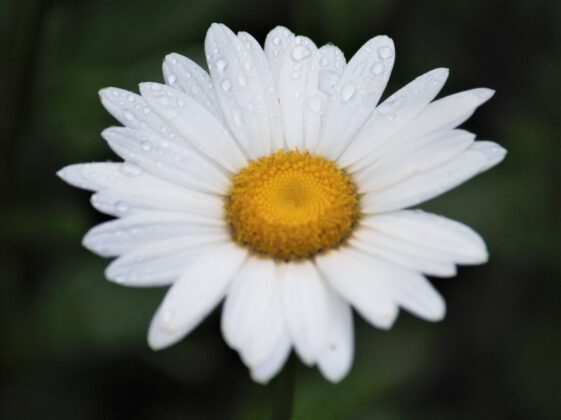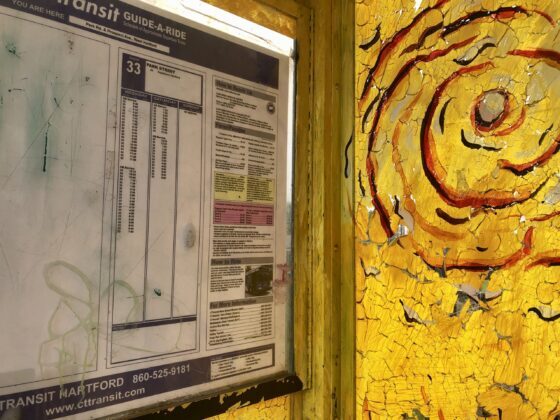“Human beings have fallen out of alignment with life. Their beliefs and ways of being have shifted dramatically from those of their ancestors, taking them further and further away from the sources of their survival. As a result, people have forgotten how to live in relationship with the rest of creation. They have lost their respect for their elders in the natural world, such as the trees, waters, soils, and millions of other species that thrived on Mother Earth long before human beings arrived.”
— Sherri Mitchell, Weh’na Ha’mu Kwasset,
from “Indigenous Prophecy and Mother Earth,”
published in All We Can Save: Truth, Courage, and Solutions for the Climate Crisis
What’s hopeful is seeing more people waking up to how this selfish, entitled way of being has not served us in the long run, and then seeing them behave differently than how they were raised, and by raised, I mean either by parents or their community or by the endless stream of messaging and marketing that tells us bigger is better, no matter the costs. I rejoice every time someone rejects the “hustle culture” or opts for collaboration instead of ego-driven competition. Whenever someone pushes back on the toxic belief in human dominion over animals, I applaud. Swimming against cultural tides is not easy for most, but those tides are turning. They must.
We are now thirteen days into “Plastic Free July,” a movement that is in its thirteenth year and exemplifies the kind of energy that is useful right now. The basic idea of it is for people to challenge themselves to reduce consumption of unnecessary single-use plastics. While water wrapped in plastic may be a necessity for those in regions where their drinking water is polluted, while a plastic straw may be a necessity for people with certain disabilities, most of us in the United States can admit that our municipal water is potable and we can easily drink most, if not all beverages, without a straw — plastic or otherwise. Those who can safely use another alternative (place glass under tap, pull handle; carry a reusable container to refill while out) are then challenged to do just that.
We’ve all been around an energy suck of a person who has decided that since he can’t behave perfectly, can’t achieve actual zero waste, can’t make no negative impact, then he is off the hook and therefore entitled to not try. So he doubles down on his unnecessary consumption and shrugs. If he can’t win at environmentalism, then why shouldn’t he eat red meat daily, drive everywhere without considering even how to combine errands, use more resources than necessary? Yuck.
Plastic Free July, however, is focused on what people can do. They are solution-oriented, and aren’t about to shame people who are just learning or finally ready to give change a shot. They believe small changes add up. We are not going to “cure” climate change by skipping straws, as some of the Doomers are quick to point out; however, and this is where we differ, taking small individual steps is a way for someone to gain momentum. The straw is, for some, the last straw. It’s what gets them to pay more attention.
Participating in a social challenge like this, separate from just what a person takes on by themselves, can also be a way for people to feel a bit less alone in their actions. Skipping the straw or carrying your own bag — simply, gateway actions — is one thing, but the moment you start talking to others about it, you create ripples, and perhaps become part of something larger if you allow yourself to be open to it. Before long, you find yourself participating in cleanups or sending in testimony to change policy, and that’s where the larger changes happen.
Being involved effectively, without teetering at the edge of constant burnout, requires being grounded, having the right mindset about things. You don’t get that through perfectionism or comparing yourself to others or having a desire to conquer. It arrives with curiosity and humility, which I have seen a lot from those participating in this challenge. People ask questions to learn, not to stump each other. They share their solutions, to be helpful, not as a way to show off. They support one another. There’s collaboration, not competition. It’s being connected that gives us the best chance at survival. As Samantha Montano says, “one of the best things you can do to prepare for disaster is to bring your neighbors a basket of muffins.” That’s the mentality that gets us closer to one another, and to the plants and animals with whom we share this planet.
Photograph: Daisy in my backyard; do not know who planted it. Perhaps a bird.
Climate Possibilities is a new series about climate mitigation, along with resilience, resistance, and restoration. It’s about human habitat preservation. It’s about loving nature and planet Earth, and demanding the kind of change that gives future generations the opportunity for vibrant lives. Doomers will be eaten alive, figuratively. All photographs are taken in Hartford, Connecticut unless stated otherwise.


Linda Pagani
I think it’s also important for restaurant customers to advocate against single-use materials when dining in. I’m mainly thinking of cafes that serve coffee drinks and food in plastic, paper, or styrofoam, even when you’ve stated more than once that you’re eating in. At first, the use of these materials became ubiquitous during Covid, and then it was adopted as standard practice. It’s just so wasteful and unnecessary. One cafe owner told me it wasn’t in their business plan. If you advocate for actual cups, plates, and silverware and the business isn’t interested in making the change, don’t go there anymore.
Kerri Ana Provost
Thank you!
I have so much more to say about this, but I agree with you 100% and wish that all restaurants/cafes had a kind of anonymous suggestion system, either online or a physical suggestion box, so that exactly this can be communicated in a way that ensures the manager hears it without needing to pull someone from whatever they’re working on in the moment.
I was very disappointed recently when I visited a restaurant for the first time in a few years — so I knew what their standards were before — to get single-use utensils, disposable condiments, and completely unnecessary stirrers in a drink (which was at least served in a glass, but who knows, maybe on a future visit that bartender will decide to put all cocktails in plastic cups). We were in a dining area. Yes, they do a lot of take out, but besides the waste, there’s something gross about ordering a fairly expensive meal and then be given a pile of plastic as if we’re out on a picnic or something. At least I brought my tupperware for the leftovers, and they’re on my list of places not to return to until I’ve passed along my concerns.
Linda Pagani
There are no words for your dining experience, and barring some kind of dish or kitchen catastrophe, there is no reason for it.
Regarding the suggestion box, that’s a good idea. People can also e-mail the owner, if they aren’t on site. When I mention speaking to the owner, I’m referring to locally owned, independent businesses, though people can try talking to a manager of a chain.
In my case, in addition to the owner and the business plan, the owners of 2 places in 2 different communities waited on me. One said they know plastic isn’t good for the environment. That was it. Another owner was on the floor idly observing the scene and said they also don’t like plastic clamshells, but vaguely blamed it on supply-chain issues, two years after Covid. It didn’t matter that I said I would like to buy a lot of the baked goods behind the case, but couldn’t because of the plastic packaging.
Going a step further, it’s astonishing that in 2023, with everything we know about the environmental damage caused by plastic, that a lot of restaurants and cafes post Instagram photos of their libations in plastic cups replete with plastic cover and a plastic straw. It is so tone deaf. I don’t understand how some (not all) of them can contribute to inundating our communities, that they’ve worked so hard to be a part of, with plastic pollution, even as they tout their community engagement. Again I’m speaking here of locally owned, independent small businesses, though of course it applies to corporate entities.
Kerri Ana Provost
That last bit — I’ve been noticing that too. I could even forgive the super occasional one of those, like someone taking their fancy iced matcha whatever to go to a beautiful location — but these are just their standard photos now. It cheapens their product and I don’t know why they aren’t seeing that.
It’s tough because we’re constantly told how the restaurant business has been struggling, but I find it hard to support those that have changed practices for the worse. The place I was referring to used to provide real silverware/flatware, paper straws, and have their condiments in refillable containers. The person working that night shrugged off another customer’s questions about being given to-go condiments, being like “well, we do lots of take-out and this is easier.” And in this case, I know this throwaway culture does not match up with the owner’s values, which is really astounding to me.